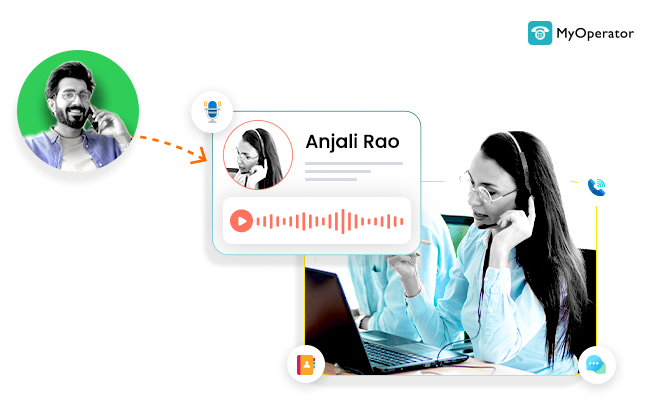Call recording is more than just a commonplace feature in automated call management; it is a strategic asset that plays a pivotal role in shaping the dynamics of your business.
The multifaceted impact of phone call recording extends across the perspectives of customers, employees, and employers, making it an indispensable tool for achieving customer satisfaction and enhancing overall service quality.
Call recording becomes a valuable resource for gaining insights that transcend conventional success metrics.
By implementing call recording services and utilizing business call recording software, organizations can effectively monitor calls for quality assurance and understand how well employees cater to caller needs.
Without the ability to leverage the benefits of call recording, businesses face a daunting task in evaluating their success and identifying areas for improvement.
Automatic call recording not only facilitates efficient quality control but also enables organizations to explore service improvement strategies that would otherwise remain unexplored.
Join us as we delve into the contemporary importance of call recording in the ever-evolving landscape of business communication.
In this blog, discover how this technology continues to redefine service excellence in the ever-demanding world of customer-centric enterprises.
Benefits and Importance of Call Recording Software
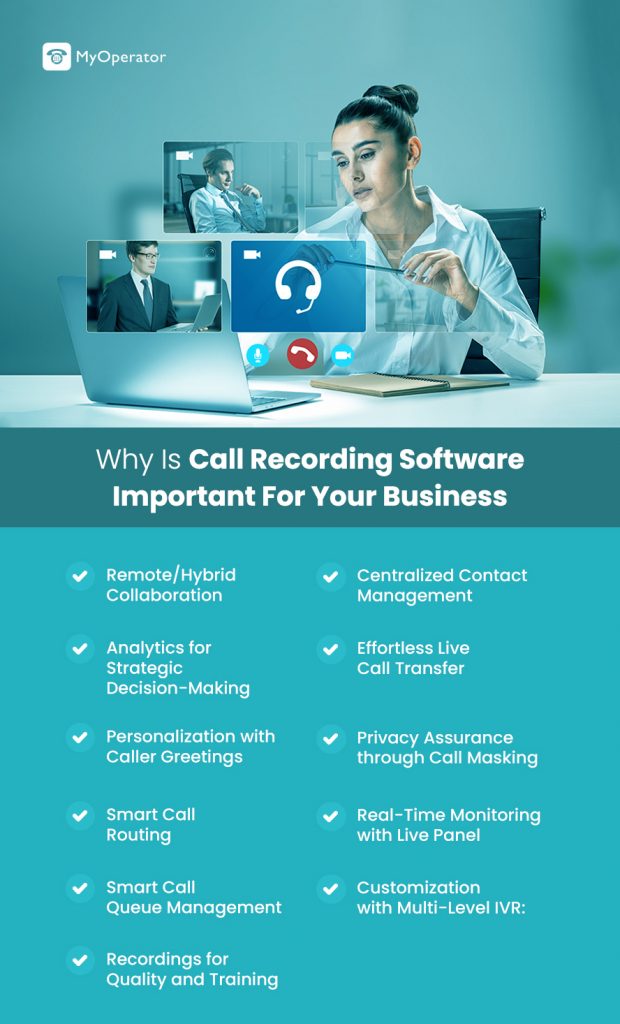
The benefits of call recording extend far beyond simple quality control. It is a strategic asset that, when utilized effectively, can redefine service excellence and contribute to the long-term success of your business.
Let’s Understanding How Does A Business Use Call Recording
1. Resolving Misunderstandings with Precision
In the absence of call recording, resolving misunderstandings between callers and employees can be challenging.
Call recording provides an accurate representation of conversations, enabling businesses to pinpoint the origin of misunderstandings and implement proactive solutions.
2. Employee Performance Enhancement
Determining the strengths and weaknesses of employees is crucial for running a high-quality business.
Through the playback of recorded conversations and running it with advanced call analytics, employees can self-assess and make necessary adjustments. Management, in turn, gains insights into individual performance, paving the way for targeted improvements.
Fostering Collaborative Monitoring for Growth
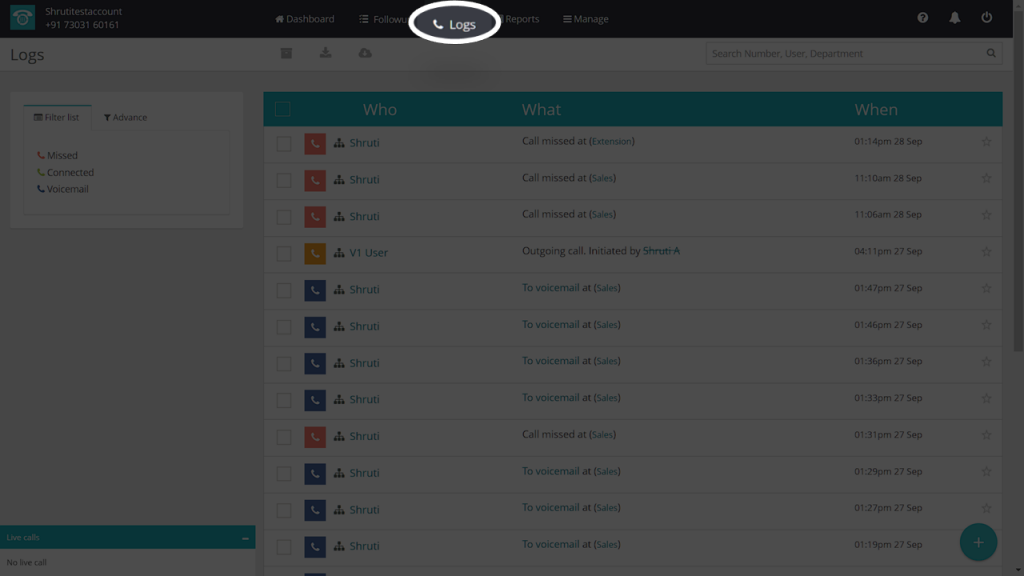
1. Inclusive Monitoring for Employee and Employer Benefit
Collaborative monitoring fosters a culture of acceptance and cooperation among employees and employers. Clearly defined expectations and the importance of calls to the business and its customers contribute to a more engaged workforce.
2. Objective Feedback for Continuous Improvement
Objective feedback, based on fair and agreed-upon evaluation methods, is essential for employee growth. Regular and consistent feedback, delivered through various channels, creates opportunities for continuous business development.
Efficiency Through Call Recording Technology
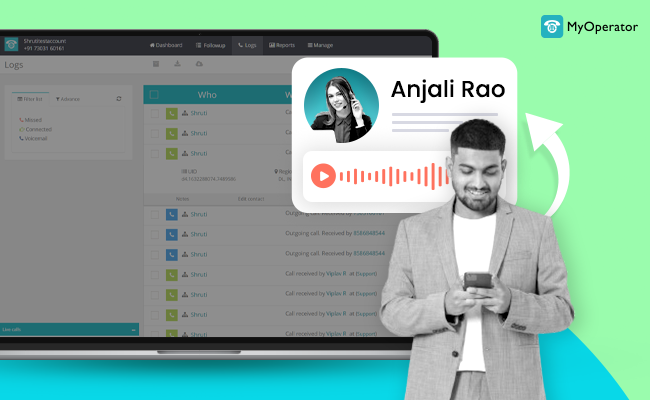
1. Overcoming Memory Limitations
Recording calls not only saves time on retrieving valuable content but also overcomes the limitations of human memory. The added benefits of rewind, fast-forward, and playback options enhance the efficiency of information retrieval.
2. Customer Insights and Time Savings
Customer calls, comments, and suggestions captured through recording are invaluable for business growth. The ability to review and analyze calls not only encourages business growth but also saves time by eliminating the need to dig through vast amounts of information.
Optimizing Quality Evaluation
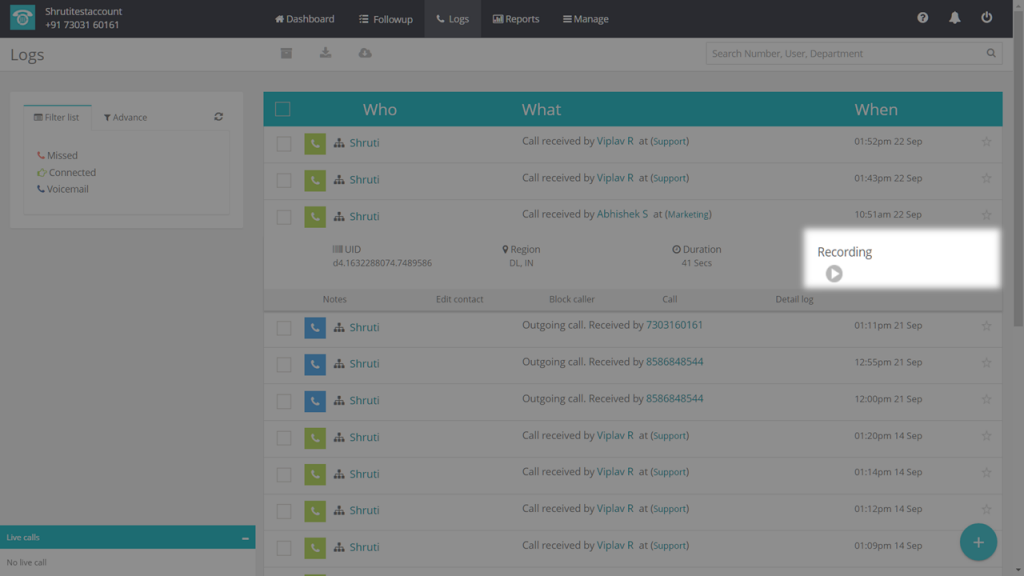
1. Dedicated Quality Monitoring Personnel
Investing in a dedicated individual or team for quality monitoring ensures that operational staff can focus on managing tasks efficiently.
Supervisors can then concentrate on planning marketing campaigns (whatsapp and email) rather than being burdened with quality monitoring responsibilities.
2. Correlation Between Monitoring Effort and Service Quality
The equation is simple: increased time and effort invested in monitoring result in better service to customers, leading to higher benefits in terms of sales and customer retention.
Continuous Improvement and Competitive Edge
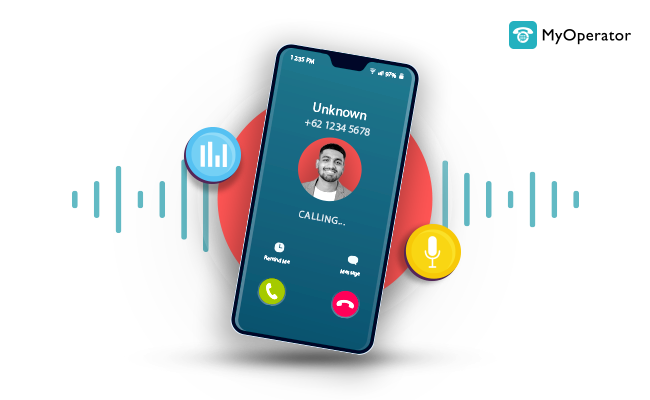
1. Comparing Performance and Outsourcing Solutions
Businesses can compare their performance with competitors and consider outsourcing monitoring functions to external agencies for a cost-effective option.
2. Rewarding Excellence and Integrating Positive Feedback
Recognition and rewards for high-quality work, along with the integration of positive feedback into annual appraisals and benefits schemes, contribute to a motivated and customer-focused workforce.
Striving for Excellence in Customer Experience
1. A Well-Executed Quality Management Procedure
Implementing a well-thought-out quality call management procedure uplifts the overall customer experience, providing agents with goals to strive for and offering valuable insights into core traits and skills needed for customer interactions.
2. Competitive Advantage Through Positive Customer Experiences
Customers have a more positive experience when dealing with businesses that prioritize quality management. This competitive advantage is invaluable in today’s business landscape.
Measuring Success with Comprehensive Call Recording Services
Comprehensive call recording services not only improve customer service and sales techniques but also provide a valuable tool for measuring the success of marketing campaigns.
With call recording as part of an innovative system, business owners gain a comprehensive understanding of their customer base and ensure that no call goes unanswered.
How Does Call Recording Software Work?
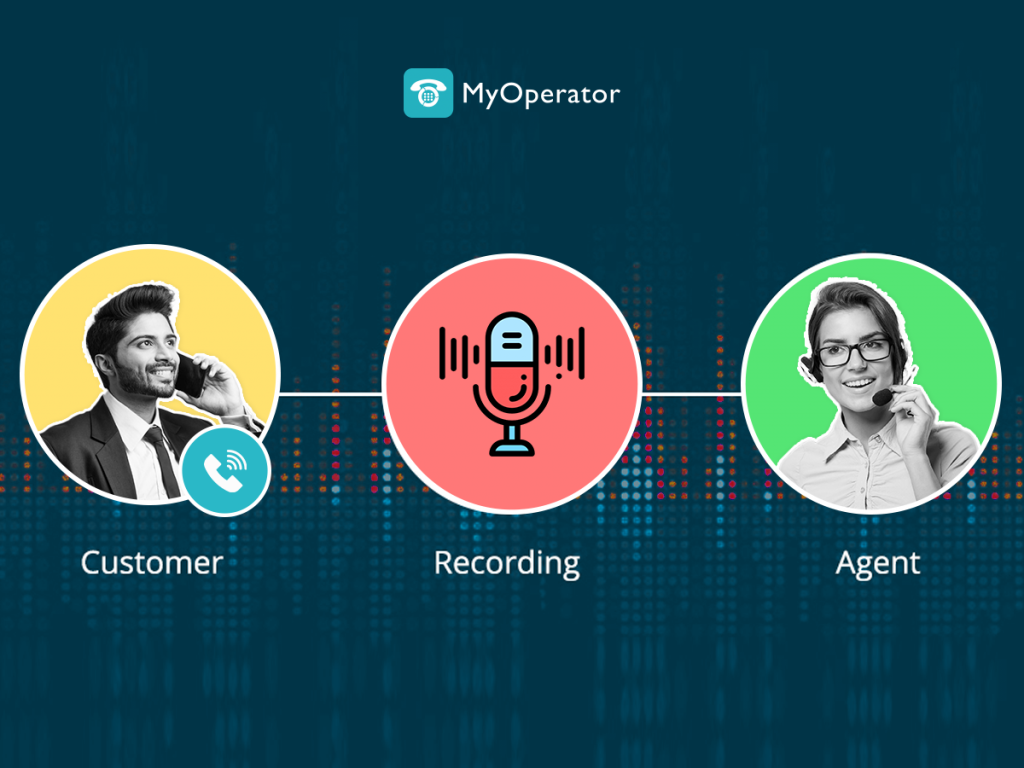
Ever wondered about the inner workings of call recording? If you have, then let’s put an answer to your question.
Let’s delve into the seamless process that transforms your MyOperator call center software into a powerful tool for organized and efficient communication.
Understanding the Mechanics: How Does it Work?
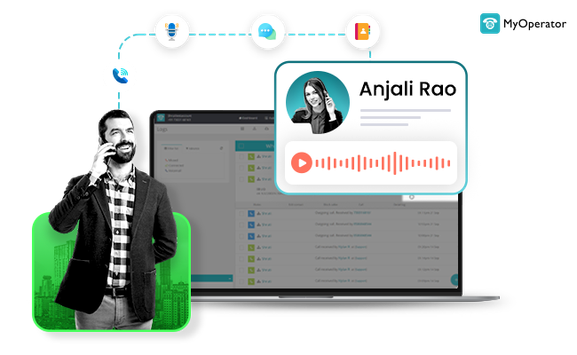
Every call received on your MyOperator call center software number undergoes a sophisticated recording process, saving each interaction in the widely compatible mp3 format.
The recorded calls are easily accessible through a secure, user-friendly web interface, granting you a personalized login for efficient management.
Real-Time Access and Essential Insights
Here’s a step-by-step breakdown of the process:
- You Answer the Call:
-
- As soon as you answer a call, the innovative call recording technology springs into action, capturing the entire conversation.
- Secure Storage and Instant Retrieval:
-
- The recorded call is securely stored on the web interface, available for retrieval at any time that suits your convenience.
- Real-Time Data Access:
-
- Call recording data is stored online in real time, providing instant access to crucial statistics. This includes caller location, phone number (if available), dialed number, end destination, call time, and duration.
Optimizing Communication: The Benefits Unveiled
Embracing call recording technology yields significant benefits, especially in enhancing customer service and addressing missed calls effectively.
1. Dynamic Call Distribution:
- Businesses with multiple outlets can intelligently distribute calls among their locations and sales teams, optimizing efficiency based on call volume.
2. Time of Day Routing:
- Take control of incoming calls with time-of-day routing. Direct calls to different numbers, be it mobile or landline, through our user-friendly web interface, and witness immediate routing changes.
3. Proactive Missed Call Management:
Call recording enables proactive management of missed calls through two essential features:
- Voice Message Retrieval: If a customer leaves a voice message, the technology instantly emails it to you as a sound file.
- Missed Call Alert: In the absence of a voice message, receive a missed call alert email with the date, time, and phone number, allowing you to promptly return the call.
Unlocking Intelligent Data Access
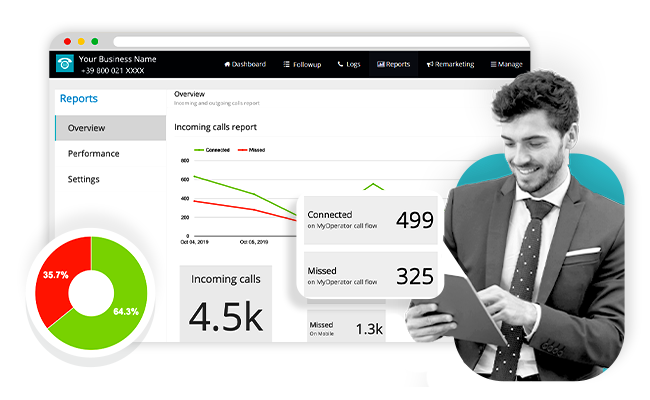
In essence, recorded calls offer more than just a playback feature; they grant access to intelligent data about your respondents. This data becomes a valuable asset in refining your communication strategies and understanding customer behavior.
As a business owner or communication manager, leveraging the power of call recording is not just about retrieving conversations—it’s about transforming data into actionable analytics & insights for continuous improvement.
Lastly, we would like to point out that the aim of quality monitoring, especially in the context of an IVR service system, from an operational point of view is to identify the calls failing to meet predefined standards and get to the root cause of why.
This process leaves you and your team to get to the bottom of it and helps you to improvise and improve the efficiency of your IVR system.

